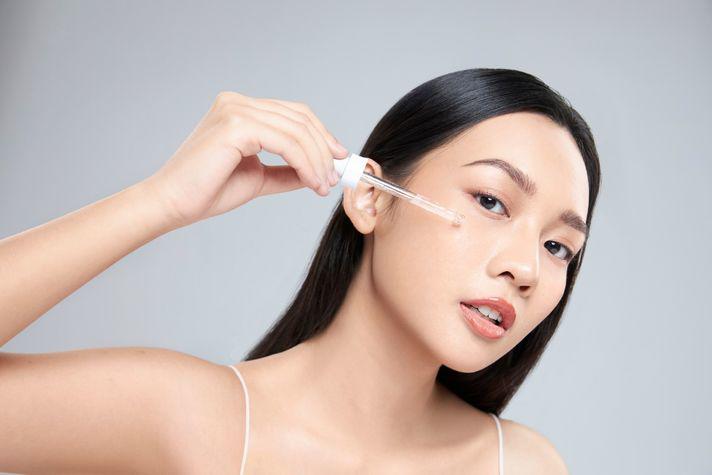But it’s not just about sunscreen; women also need to use other skincare products such as serums. So, the question arises: should you apply sunscreen before or after serum to avoid any interference with their respective efficacies?
The timing of sunscreen application, whether before or after serum, depends on the type of sunscreen you use and can either enhance or reduce its effectiveness.

The order of application depends on the type of sunscreen you use. (Illustrative image)
There are two types of sunscreens: Chemical and Physical
Sunscreens contain active ingredients that filter UV rays from the sun, protecting your skin and maintaining its stability under sunlight. According to EWG, the most common sunscreens contain chemical filters and typically combine two to six of the following ingredients: oxybenzone, avobenzone, octisalate, octocrylene, homosalate, and octinoxate.
Chemical sunscreens should be applied FIRST, before serums or moisturizers, to ensure proper absorption into the skin.
Physical sunscreens contain zinc oxide or titanium dioxide. They sit on top of the skin, creating a barrier that prevents other products from penetrating. Therefore, physical sunscreens should be applied AFTER serums and moisturizers.
For both physical and chemical sunscreens, it is recommended to apply them before makeup. As for powder sunscreens, they can be applied after makeup and are convenient for reapplication as they won’t affect your makeup.
How Can Serums Enhance Sunscreen Efficacy?
Sunscreens offer broad-spectrum protection from the sun’s rays, including UVB rays, which cause sunburns, and UVA rays, responsible for signs of aging like wrinkles, fine lines, and sunspots. However, sunscreens cannot block all the sun’s energy from reaching your skin. Solar energy includes infrared radiation, which penetrates deeply into the skin and generates free radicals.

Adding serums with antioxidants can boost sun protection. (Illustrative image)
Recent studies suggest that topical supplements, such as antioxidants, can be applied to the skin to further reduce sun-induced damage that leads to skin aging and skin cancer.
Recommended antioxidants include Vitamin E, Vitamin C, and tea extracts such as echinacea pallida extract, Gorgonia extract, and chamomile essential oil.
Applying a serum with antioxidants, such as 20% Vitamin C + E Ferulic Acid, followed by a physical sunscreen, can provide significant additional protection against the sun. The high concentration of L-ascorbic acid promotes healthy cell regeneration while brightening and protecting the skin.






































